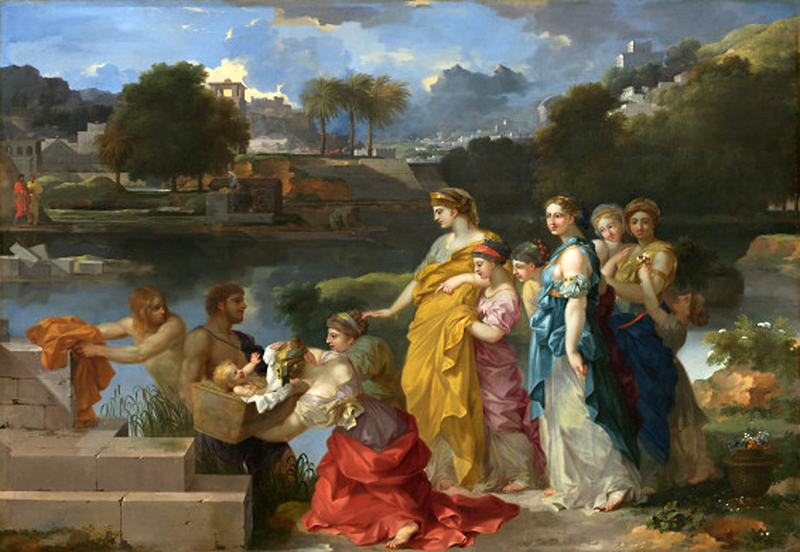
Finding of Moses
Sebastien Bourdon, ca.1657
My dear friends,
In Exodus 1:8-2:10, we find lessons that are not merely historical recounts, but profound teachings of humanity, compassion, and the unyielding spirit that lies within us. These lessons resonate deeply with the teachings of compassion, love, and kindness, echoing the universal truth of the interconnectedness of all beings.
The new king (Pharaoh) of Egypt who did not remember Joseph, and who sought to oppress the Israelites, reflects a state of ignorance, not unlike the ignorance that envelops our minds and obscures the true nature of reality. He was in the grip of fear and insecurity, failing to recognize the interdependence that binds all human beings together. Such ignorance is a primary source of suffering. It leads to actions propelled by negative emotions, actions that are harmful and oppressive.
Yet, within this narrative of oppression and cruelty, beams of compassion and kindness break through. The midwives, Shiphrah and Puah, exemplified the power of moral integrity. They did not succumb to the oppressive edicts of the king. In their civil disobedience, we are reminded that true power is not in oppression, but in compassion and ethical discipline.
And then there is Moses, a child born amidst immense adversity, yet his life is saved by the compassionate action of Pharaoh’s daughter. This act of compassion is a testament to the innate goodness that lies within all beings, a goodness that can pierce through the veils of ignorance and prejudice. It echoes the Buddhist belief in the fundamental nature of goodness inherent in all beings, awaiting to be awakened.
This narrative illuminates the journey from the darkness of ignorance and oppression to the light of compassion and liberation. It is not merely a journey of the Israelites but is emblematic of the inner journey each one of us must undertake. We are all at times ensnared by the Pharaohs of our own ignorance, fears, and prejudices. Yet, within us, there is also the innate potential for wisdom and compassion, the light that can liberate us and others from suffering.
In the story of Moses’ deliverance, we witness the transformative power of compassion. We are reminded that even amidst the darkest moments, the potential for enlightenment and liberation is always present. Every act of kindness, every gesture of compassion, contributes to the dispelling of ignorance and the awakening of wisdom.
May we all be inspired by this ancient narrative to undertake our own journey of transformation, to confront and dispel the ignorance that binds us, and to awaken the innate wisdom and compassion that lies within us. In this way, may we contribute to the collective journey of all beings from the darkness of suffering to the light of liberation.